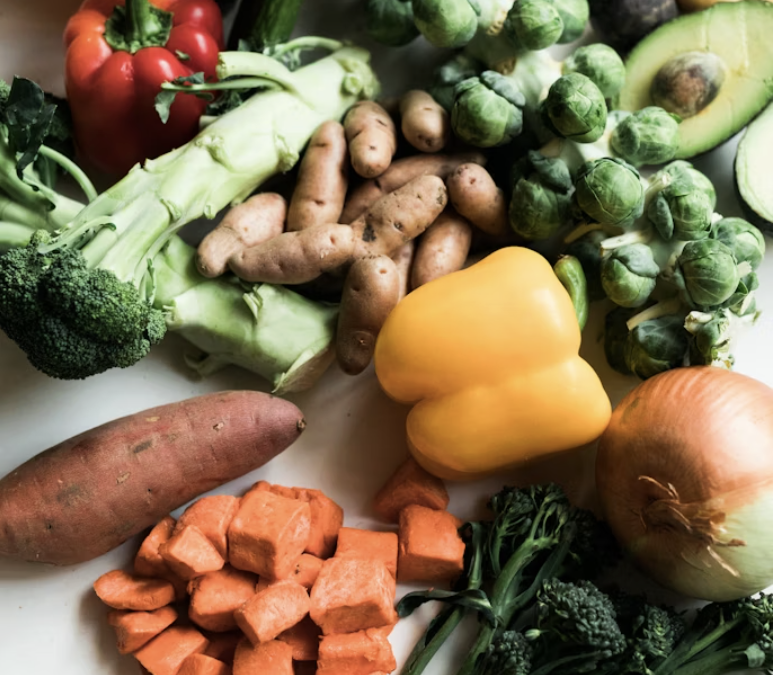10 rules to eat by – Prime cuts, no filler!
After a decade of decoding digestive dilemmas and translating trials into practical principles, I’ve learned something simple:
Good nutrition does NOT need to be complicated. It needs to be sustainable.
Think of this as your pocket guide to eating well.
Ten evidence-based nuggets just for you.
The 10 Nutrition Cheat Codes
1. Cut the CRRAHP
Calorie Rich, Refined And Hyper Palatable foods
You know the culprits.
The ones engineered to make you reach for “just one more.” Pringles. Doritos. Those cookies that somehow vanish in one Netflix session.
There is a reason you can polish through 1000 calories of chocolate but if I gave you 1000 calories of chicken breast and broccoli you will be full half way through.
These foods disrupt our satiety signals through salt, sugar, and fat. A study in Cell Metabolism showed ultra-processed foods cause people to eat 500 calories more per day compared to whole foods; even when meals were matched for calories and macronutrients.
Your brain does not register fullness the same way.
The fix? Shop the perimeter of the supermarket. If it has an abnormally large list of ingredients or ones your grandmother wouldn’t recognise, pause before purchasing. If it expires in 2028…put it down or eat with caution.
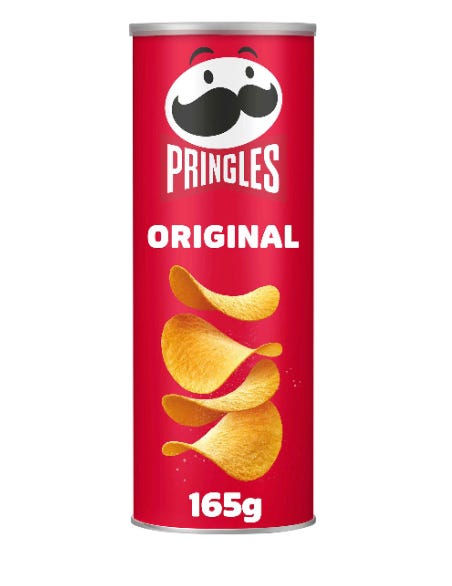
Once you pop…you better stop!
2. Black Coffee: Your Liver’s Best Friend
Multiple meta-analyses show coffee drinkers have a lower risk of liver cirrhosis and significant reduction in liver cancer risk.
One to three cups daily.
The compounds kahweol and cafestol, along with chlorogenic acids, appear to reduce liver inflammation and fibrosis.
Black is best…milk and sugar dilute the benefits. But if you need a splash of something, make it minimal.

Early morning win
3. Peppermint Oil vs. Peppermint Tea
One treats spasms. One tastes lovely. They’re not the same thing.
Enteric-coated peppermint oil capsules can reduce IBS symptoms through their antispasmodic action on smooth muscle. The menthol needs to reach your intestines intact, hence the special coating. Peppermint tea? Delightful, soothing, but therapeutically different. The concentration simply isn’t there.
For cramping and bloating, reach for the capsules.
For comfort after dinner, brew the tea.
4. Nature’s Laxatives
Two kiwis daily increase bowel movements by one per week. Six prunes provide 3 grams of fibre plus sorbitol, a natural osmotic laxative. A tablespoon of ground flaxseed adds bulk and omega-3s. Figs bring ficin, an enzyme that aids digestion.
These foods match or exceed many over-the-counter remedies, minus the dependency risk. Start with one, give it a week, then adjust.
Read my full guide here

Eat with skin on or skin off???
5. Prebiotics: Feed Your Friends
Prebiotics are the dinner party for your gut bacteria. Oats contain beta-glucan. Onions and garlic pack inulin. Cabbage delivers resistant starch. Beans bring galacto-oligosaccharides. These compounds survive your stomach acid and become bacterial fuel in your colon.
Main Benefit?? Better blood sugar control, improved calcium absorption, and enhanced immune function. Aim for 5-10 grams of prebiotic fibre daily. Your gut will thank you with better everything.
6. Probiotics: The Live Ones
Sauerkraut (unpasteurised), kefir (MOST research backing its benefits), aged cheddars (look for “contains live cultures”), miso, kimchi, and tempeh deliver actual colonies to your intestines. A systematic review in Nutrients found regular consumption reduces upper respiratory infections by 27% and shortens antibiotic-associated diarrhoea by 1.5 days.
If you’re new to fermented foods…start with kefir…tastes ok and has the most evidence to back its benefits.
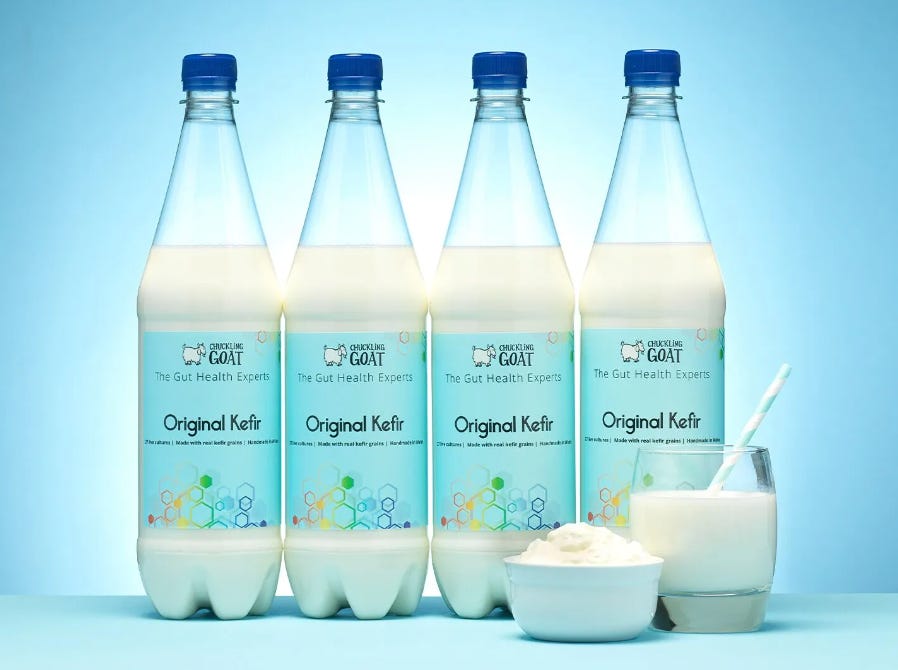
You gotta hear the fizz when you open that lid!
7. Polyphenols: The Longevity Compounds
Packed with anti-oxidants and orchestrate multiple protective pathways.
Mixed berries, dark chocolate (75% minimum), green tea, and red onions contain flavonoids that reduce all-cause mortality by 13% in large cohort studies. They improve endothelial function, reduce inflammation, and modulate gene expression.
Aim for 500mg of polyphenols daily….about a cup of berries, an ounce of dark chocolate, or two cups of green tea. Mix and match for maximum benefit.
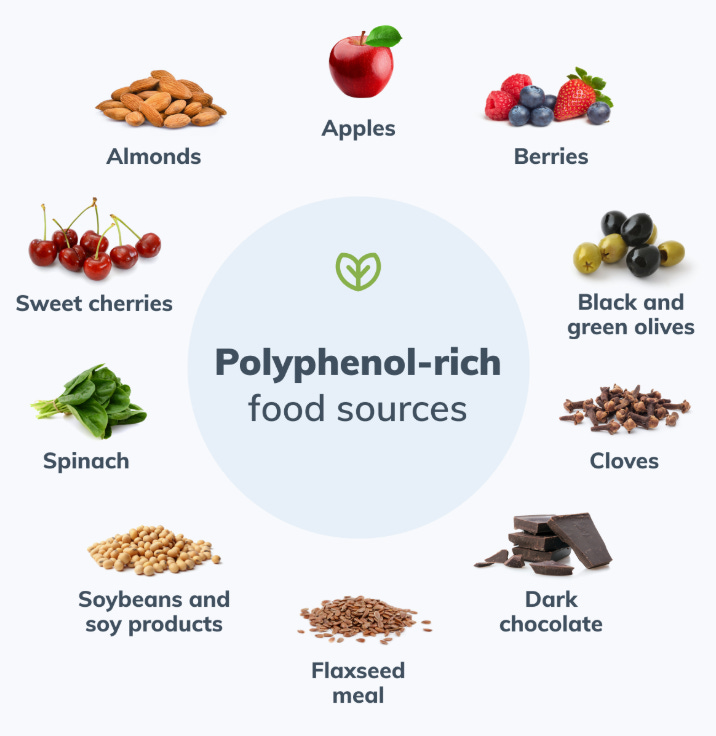
https://fullscript.com/blog/polyphenols
8. Sleep Snacks
Melatonin doesn’t just come in a pill.
Pistachios contain 660 nanograms of melatonin per gram…the highest of any food tested.
Tart cherries pack 13 nanograms per gram plus tryptophan. Studies show consuming either two hours before bed improves sleep onset and duration.
Skip the supplements.
Shell 30 pistachios or drink 8 ounces of tart cherry juice as your evening ritual. Natural sources provide cofactors synthetic versions lack.
9. Fibre and Fruit Juice (don’t get me started!)
Juicing strips away all of the fruits goodness!
A whole orange contains 3 grams of fibre that slows sugar absorption.
The juice? Zero fibre, rapid glucose spike.
Your liver processes that fructose load differently when fibre’s absent, increasing lipogenesis and insulin resistance.
The solution is laughably simple: eat the fruit. Chew it. Let your digestive system work as designed. Save juice for special occasions, not daily sustenance.
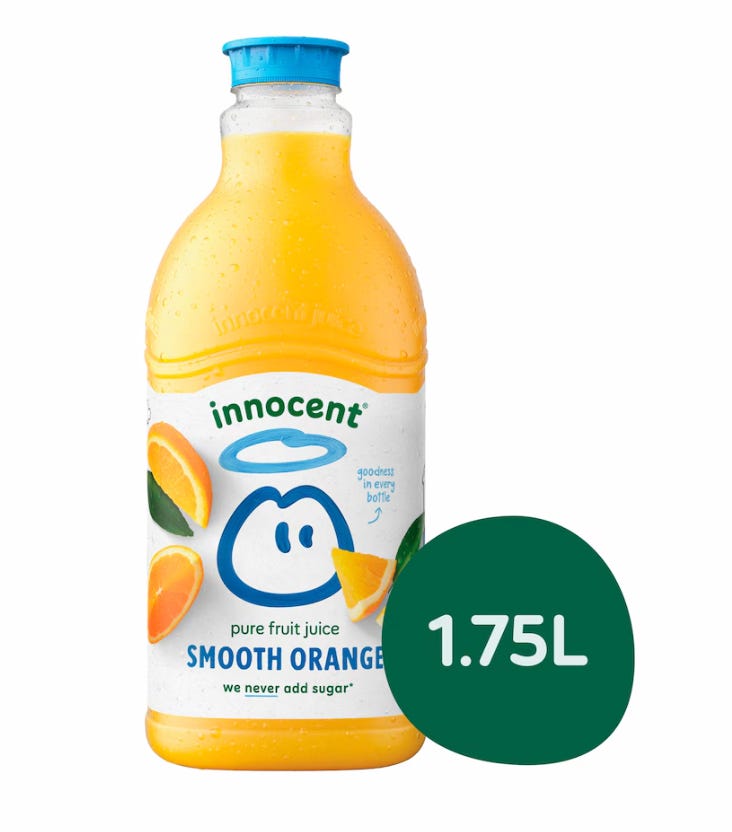
Not so innocent…
10. The Mediterranean Reset
The gold standard diet in my opinion.
The PREDIMED trial followed 7,447 people for five years. Those on a Mediterranean pattern (olive oil, nuts, fish, whole grains, legumes) showed 30% reduction in cardiovascular events. More remarkably, markers of insulin resistance and oxidative stress reversed within weeks.
For fatty liver, the evidence reports significant reduction in liver fat after six weeks.
Plus it tastes great!
Read my full guide here
Nutrition science evolves, but patterns persist.
Eat food your great-grandmother would recognise.
Feed your bacteria. Choose quality over quantity.
Let fruit and vegetables take HALF of your plate.
Fermented food and polyphenols? Use what works, adjust what doesn’t.
After all, the best diet is the one you’ll actually follow.
Make it simple. Make it sustainable. Make it yours.
Struggling with liver or digestive issues that affect your daily life? Invest in your gut health with a private, personalised consultation where I will explore your specific symptoms and develop a targeted treatment plan. Take the first step toward digestive wellness today: https://bucksgastroenterology.co.uk/contact/
References
- Hall KD, et al. Ultra-processed diets cause excess calorie intake and weight gain. Cell Metabolism. 2019;30(1):67-77.
- Kennedy OJ, et al. Coffee consumption and kidney function: A Mendelian randomization study. American Journal of Kidney Diseases. 2020;75(5):753-761.
- Alammar N, et al. The impact of peppermint oil on the irritable bowel syndrome: a meta-analysis of the pooled clinical data. BMC Complementary Medicine and Therapies. 2019;19:21.
- Gearry R, et al. Reduction of dietary poorly absorbed short-chain carbohydrates improves abdominal symptoms in patients with inflammatory bowel disease—a pilot study. Journal of Crohn’s and Colitis. 2009;3(1):8-14.
- Gibson GR, et al. Expert consensus document: The International Scientific Association for Probiotics and Prebiotics (ISAPP) consensus statement on the definition and scope of prebiotics. Nature Reviews Gastroenterology & Hepatology. 2017;14(8):491-502.
- Hao Q, et al. Probiotics for preventing acute upper respiratory tract infections. Cochrane Database of Systematic Reviews. 2015;2:CD006895.
- Micek A, et al. Dietary flavonoids and cardiovascular disease: A comprehensive dose-response meta-analysis. Molecular Nutrition & Food Research. 2021;65(6):e2001019.
- Howatson G, et al. Effect of tart cherry juice on melatonin levels and enhanced sleep quality. European Journal of Nutrition. 2012;51(8):909-916.
- Wojcicki JM, Heyman MB. Reducing childhood obesity by eliminating 100% fruit juice. American Journal of Public Health. 2012;102(9):1630-1633.
- Estruch R, et al. Primary prevention of cardiovascular disease with a Mediterranean diet supplemented with extra-virgin olive oil or nuts. New England Journal of Medicine. 2018;378:e34.
General Disclaimer
Please note that the opinions expressed here are those of Dr Hussenbux and do not necessarily reflect the positions of Buckinghamhsire Healthcare NHS Trust. The advice is intended as general and should not be interpreted as personal clinical advice. If you have problems, please tell your healthcare professional, who will be able to help you.

